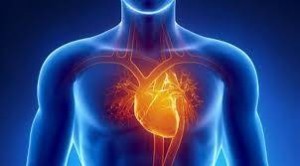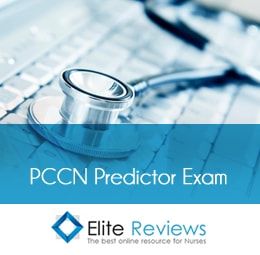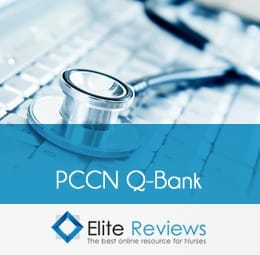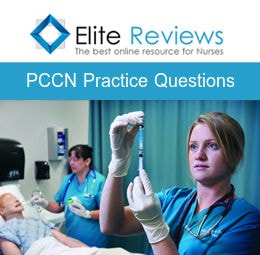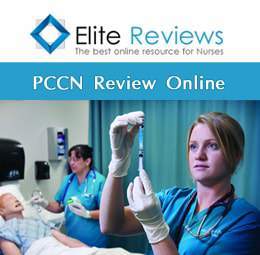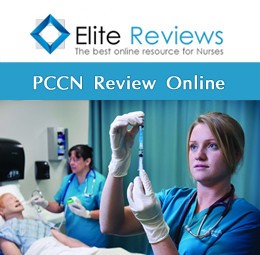PCCN Cardiac Exam Overview
PCCN Cardiac Exam Overview
The Cardiac portion of the PCCN exam covers the majority of the exam. The cardiac section will consist of roughly 20 to 25 questions on the PCCN exam. This is the majority of the exam so it is imperative that you focus a lot of your attention on this area. This post will give you a brief outline of what to expect from the cardiac portion of PCCN exam. We will briefly cover the cardiovascular system and some of its major components. Listed below is a detailed outline of what to expect from the cardiac portion of the PCCN exam followed by a brief overview of the cardiovascular system.
Cardiovascular
- ACS, Angina, Acute MI
- Acute Heart Failure/Pulmonary Edema
- Acute Inflammatory Disease
- Acute Peripheral Vascular Insufficiency
- Cardiac Surgery and Trauma
- Cardiac Tamponade
- Cardiogenic Shock
- Cardiomyopathies
- Hypertensive Crisis
- Hypovolemic Shock
- Valvular Defects
- Ruptured or Dissecting Aneurysms
- ECG/Pacemakers, Pharmacology
PCCN Cardiovascular Exam
The circulatory system, also called the cardiovascular or vascular system, is an organ system that permits blood to circulate and transport nutrients, oxygen, carbon dioxide, hormones, and blood cells to and from the cells in the body to provide nourishment and help in fighting diseases, stabilize temperature and pH, and maintain homeostasis. The study of the blood flow is called hemodynamics. The study of the properties of the blood flow is called hemorrheology. Take a look at some of the cardiac practice questions below.
PCCN Cardiac Exam Prep Questions
1) Which of the following rhythm disturbances would be most likely to occur in a patient who has a serum potassium level of 8.1 mEq/L?
A) Second-degree heart block, Mobitz Type II, and asystole
B) PAC’s and ventricular tachycardia
C) Right bundle-branch block
D) Paroxysmal atrial tachycardia
2) A 65 y/o patient admitted with CHF develops hypotension, tachycardia, decreasing UO, cool clammy skin, decreasing LOC, and tachypnea. Which of the following would be included in the patient’s plan of care?
A) Positive inotropic agents, vasodilators, diuretics
B) ACE inhibitors, adenosine, beta-blockers
C) Beta-blockers, diuretics, calcium channel blockers
D) Negative inotropic agents, digoxin, antidysrhythmics
3) A 57 year old patient is experiencing insomnia and associated agitation. The patient prefers not to take a controlled substance as a sleep aid. In addition to reducing noise and interruptions, which of the following interventions has been shown to be both valuable and feasible in this situation?
A) Massage therapy
B) Aromatherapy
C) Alternative sedative
D) Progressive muscle relaxation
4) A 47 year old patient from the Mediterranean is admitted for unstable angina. The patient reports substernal chest pain 8/10, radiating down his left arm. VS are BP 134/76 mm Hg, HR 104 bpm, RR 22 bpm, Temp 98.4. Which of the following meds should be administered with caution to this patient?
A) Aspirin
B) Lopressor
C) Nitroglycerin
D) Morphine
5) The nurse is caring for a 39 y/o male patient who had a CABG 5 days ago. The patient has become increasingly anxious and irritable over the past 4 to 6 hrs. He sometimes holds his head and says it hurts but is unable to grade the pain on a scale of 1 to 10. He is oriented to person. Which of the following interventions should the nurse perform first?
A) Dipstick urine for specific gravity
B) Medicate with oral Tylenol
C) Measure capillary glucose levels
D) Apply soft limb restraints to wrists
PCCN Cardiac Exam Prep Questions Answer with Rationale
1) Correct Answer – A) Second-degree heart block, Mobitz Type II, and asystole
- Rationale – Hyperkalemia causes depression in AV conduction and leads to heart block.
2) Correct Answer – A) Positive inotropic agents, vasodilators, diuretics
3) Correct Answer – A) Massage therapy
- Rationale – Studies have demonstrated that massage, music therapy, and therapeutic touch promote relaxation and comfort to critically ill patients.
4) Correct Answer – A) Aspirin
- Rationale – Many Mediterranean males have a glucose-6-phosphate dehydrogenase enzyme deficiency. This genetic variation increases the risk for hemolysis if the patient receives aspirin.
5) Correct Answer – C) Measure capillary glucose levels
- Rationale – The patient is exhibiting anxiousness, irritability, and confusion, all of which could be a sign of hypoglycemia.
PCCN National Exam Courses
Overview
- Elite Reviews Offers A Variety Of Online Courses That Will More Than Adequately Help Prepare The Critical Care Nurse To Pass The National Exam.
- Each Course Includes Continuing Education Credit and Sample Questions.
Continuing Education
- Each Of Our Online Courses Has Been Approved Continuing Education Contact Hours by the California Board of Nursing
- Login To Your Account In Order To Access The Course Completion Certificate Once The Course Is Complete.
PCCN Free Trial
- FREE Sample Lecture & Practice Questions
- Available For 24 Hrs After Registration
- Click The Free Trial Link To Get Started – PCCN Free Trial
How It Works
How The Course Works
- First – Purchase The Course By Clicking On The Blue Add To Cart Button – You Will Then Be Prompted To Create A User Account.
- Second – After Creating An Account, All 3 Options (90, 120 or 150 Days) Will Be Listed. Select The Option You Desire And Delete The Other Two.
- Third – You Will Be Prompted To Pay For The Review Using PayPal – After Payment You Will Be Redirected Back To Your Account.
- Last – Click The Start Button Located Within Your Account To Begin The Program
- 125 Prep Questions
- Q & A With Rationales
- Approved For 5 CEU’s
- 90 Days Availability
- Cost $75.00
- 1250+ Prep Questions
- Q & A With Rationales
- Approved For 25 CEU’s
- 90 Days Availability
- Cost $200.00
PCCN Practice Questions Bundle
- 1350+ Prep Questions
- Q & A With Rationales
- Approved For 30 CEU’s
- 90 Days Availability
- Cost $225.00
PCCN Review Course
- Option 1
- Lectures & 1250+ Questions
- Q & A With Rationales
- Approved For 35 CEU’s
- 90 Days Availability
- Cost $275.00
- Option 2
- Lectures & 2000+ Questions
- Q & A With Rationales
- Approved For 40 CEU’s
- 90 Days Availability
- Cost $325.00
PCCN Review Course Bundle
- Option 3
- Lectures & 3000+ Questions
- Q & A With Rationales
- Approved For 70 CEU’s
- 90 Days Availability
- Cost $375.00

